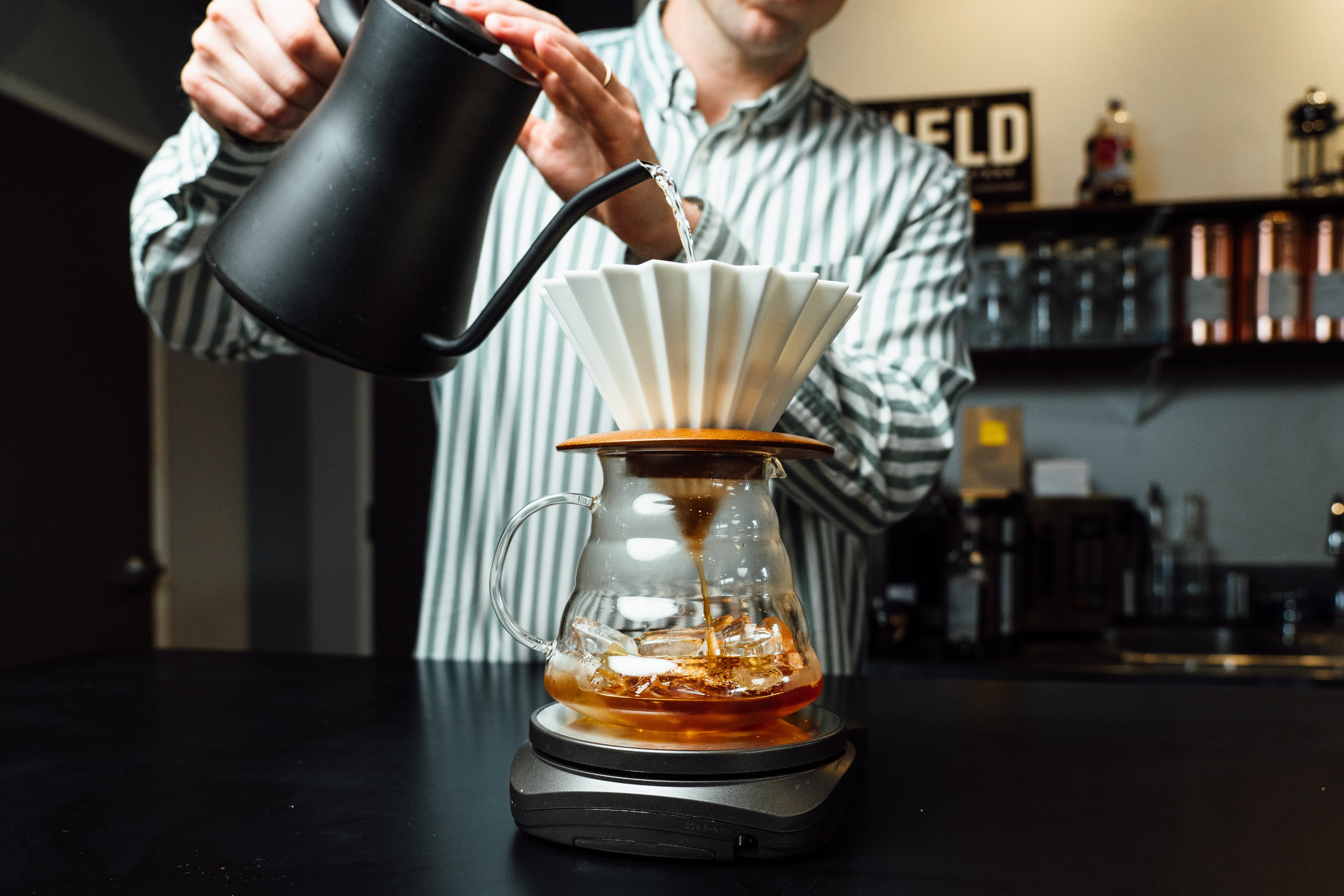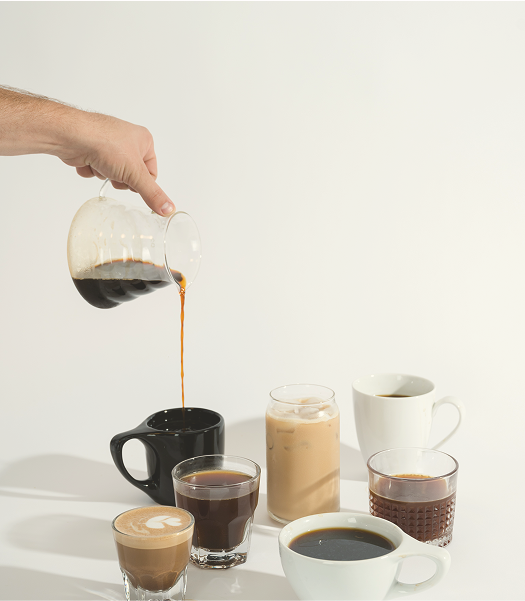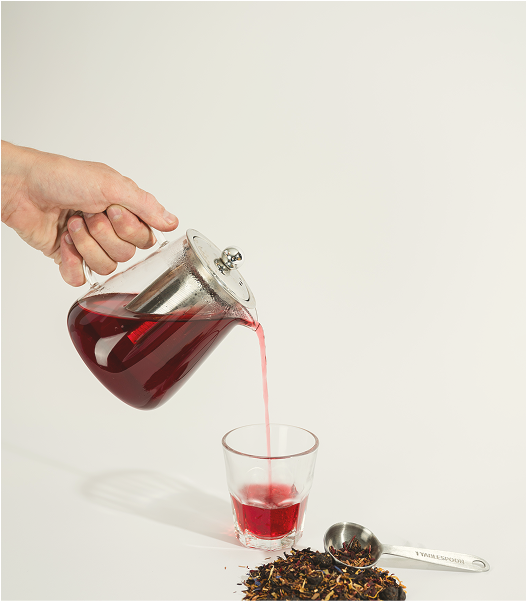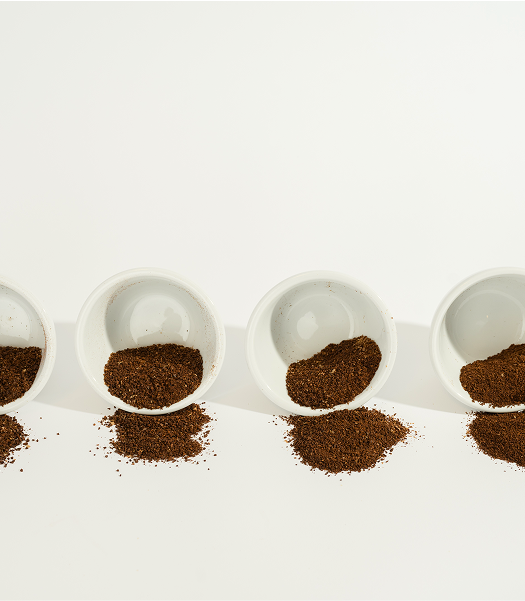Free Shipping on Orders Over $50
Part 4 of our 10 Part Series: How Much Money Does It Take to Start a Coffee Shop?
Embarking on the journey of opening a coffee shop is an exciting endeavor, fueled by a passion for coffee, community, and the desire to build a thriving business. At YIELD Coffee, we understand that this journey involves careful planning and financial acumen. In this post, we'll delve into the intricacies of coffee shop ownership, providing concrete figures, actionable insights, and expert advice to empower you on your path to profitability.
Laying the Foundation: Navigating Startup Costs

Every coffee shop dream is unique, and the initial investment required to turn that dream into reality varies significantly. Let's explore the estimated startup costs associated with different coffee shop models, along with real-world examples to offer a tangible understanding of the financial commitment involved:
Coffee Cart:
- Timeline: 1-3 Months
- Estimated Startup Costs: $10,000 - $50,000
Breakdown of Costs:
- Equipment: High-quality single or double group espresso machine ($5,000 - $18,000), espresso grinder ($2,500), batch brewer ($1,200 - $2,500), drip coffee grinder ($1,000 - $2,500), refrigeration & coolers ($750 - $1,500), water tank and filtration system ($1,000)
- Supplies: Initial inventory of beans, cups, lids, straws, napkins, etc. ($1,500)
- Permits and Licenses: Business license, health permits, vendor permits, etc. ($1,000)
- Marketing and Branding: Signage, menus, business cards, social media setup, etc. ($2,000)
- Contingency Fund: Unexpected expenses and initial operating costs ($2,000 - $5,000)
- Transportation: Trailer or van/truck for transportation of your coffee setup ($3500 - $20,000)
Real-World Example: A mobile coffee catering service that sets up at weddings, corporate events, and private parties, offering a variety of espresso-based drinks, brewed coffee, and tea. The owner invested in a high-quality espresso machine, a reliable grinder, a batch brewer for larger events, and a portable serving station to create an elegant and efficient setup. Total investment: Approximately $25,000.
Mobile Coffee Trailer
- Timeline: 2-6 Months
- Estimated Startup Costs: $20,000 - $100,000+
Breakdown of Costs:
- Trailer or Van: Purchase or conversion of a trailer or van into a mobile coffee shop ($10,000 - $50,000+)
- Equipment: High-quality double group espresso machine ($5,000 - $18,000), espresso grinder ($2,500), batch brewer ($1,200 - $2,500), drip coffee grinder ($1,000 - $2,500), refrigeration & coolers ($1,200 - $3,000), pastry case ($400), water tank and filtration system ($1,000), ice machine ($800 - $1,800) generator ($1,500), POS system ($800), etc.
- Build-out and Customization: Interior design, counter space, storage, plumbing, electrical work, etc. ($5,000 - $15,000)
- Supplies: Initial inventory of beans, cups, lids, straws, napkins, etc. ($1,500)
- Permits and Licenses: Business license, health permits, vendor permits, etc. ($1,000)
- Marketing and Branding: Signage, menus, business cards, social media setup, exterior wrap or paint, etc. ($2,000 - $5,000)
- Contingency Fund: Unexpected expenses and initial operating costs ($2,000 - $5,000)
- Transportation: Additional funds required if trailer needs towed back and forth from events
- Storage Fees: Additional funds required if trailer needs stored between service events
Real-World Example: A stylishly converted vintage trailer serving specialty coffee and artisanal pastries at farmer’s markets, local events and festivals. The owner invested in a high-quality double group espresso machine, an espresso grinder, batch brew equipment and customized the trailer's interior and exterior to create a welcoming and efficient workspace. Total investment: Approximately $40,000
Micro Coffee Shop (<1000 sq ft.):
- Timeline: 4-8 Months
- Estimated Startup Costs: $50,000 - $100,000
Breakdown of Costs:
- Equipment: Quality double group espresso machine ($7,500 - $18,000), espresso grinder ($2,500), batch brewer ($1,200 - $2,500), drip coffee grinder ($1,000 - $2,500), refrigeration & coolers ($1,200 - $3,000), pastry case ($400), water tank and filtration system ($1,000), ice machine ($800 - $1,800), POS system ($800), etc.
- Furniture and Decor: Seating, tables, counters, lighting, artwork, etc. ($5,000 - $10,000)
- Build-out and Renovation: Flooring, painting, plumbing, electrical work, etc. ($10,000 - $30,000)
- Initial Inventory: Coffee beans, tea, syrups, cups, lids, etc. ($2,000 - $5,000)
- Permits and Licenses: Business license, health permits, occupancy permits, etc. ($1,000 - $3,000)
- Marketing and Branding: Signage, menus, website development, social media marketing, etc. ($2,000 - $5,000)
- Contingency Fund: Unexpected expenses and initial operating costs ($5,000 - $10,000)
Real-World Example: A charming micro-café nestled in a historic district, specializing in single-origin coffees and handcrafted beverages. Leveraging a former food establishment, the owner minimized renovation costs and focused on investing in top-tier equipment and creating an inviting ambiance. This strategic approach resulted in a total investment of approximately $75,000.
Standard Coffee Shop (Leased or Owned)
- Timeline: 6-12 Months
- Estimated Startup Costs: $100,000 - $250,000
Breakdown of Costs:
- Equipment: Quality double group espresso machine ($7,500 - $18,000), espresso grinder ($2,500), batch brewer ($1,200 - $3,500), drip coffee grinder ($1,000 - $2,500), refrigeration & coolers ($2,000 - $5,000), pastry case ($400), food equipment ($2,000 - $15,000), filtration systems ($2,000), ice machine ($800 - $1,800), POS system ($800), etc.
- Furniture and Decor: Seating, tables, counters, lighting, artwork, etc. ($7,500 - $20,000)
- Build-out, Renovation, and Leasehold Improvements: Construction of coffee bar, seating area, kitchen, restrooms, flooring, painting, plumbing, electrical work, etc. ($30,000 - $100,000)
- Initial Inventory: Coffee beans, tea, syrups, cups, lids, etc. ($2,000 - $5,000)
- Permits and Licenses: Business license, health permits, occupancy permits, etc. ($1,000 - $3,000)
- Marketing and Branding: Signage, menus, website development, social media marketing, etc. ($2,000 - $5,000)
- Contingency Fund: Unexpected expenses and initial operating costs ($10,000 - $20,000)
Real-World Examples: Leased Location: A spacious coffee shop (2800 sq. ft.) in a prime commercial location, offering a comfortable environment for work and socializing. The owner invested in leasehold improvements and high-quality equipment and furniture. Total investment: Approximately $150,000.
Owned Building: A vibrant coffee shop serving a diverse menu. The owner invested in quality equipment, created a welcoming space, and launched a marketing campaign. Total investment: Approximately $175,000.
Coffee Shop with Drive-Thru:
- Timeline: 6-18 Months
- Estimated Startup Costs: $200,000 - $500,000
Breakdown of Costs:
- Equipment: Either 2x double group espresso machines or 1 triple group espresso machine($18,000 - $40,000), multiple espresso grinders ($5,000 - $8,000), batch brewer ($3,500), drip coffee grinder ($2,500), refrigeration & coolers ($5,000), pastry case ($400), food equipment ($2,000 - $15,000), filtration systems ($4,000), ice machine ($800 - $1,800), POS system ($800), etc.
- Construction and Build-out: Dedicated drive-thru lane, outdoor signage, landscaping, extensive plumbing and electrical work, etc. ($50,000 - $100,000+)
- Furniture and Decor: Seating, tables, counters, lighting, artwork, etc. ($7,500 - $20,000)
- Initial Inventory: Coffee beans, tea, syrups, cups, lids, pastries, food items, etc. ($10,000 - $20,000)
- Permits and Licenses: Business license, health permits, occupancy permits, food service license, drive-thru permits, etc. ($3,000 - $7,000)
- Marketing and Branding: Professional signage, menus, website development, social media marketing, grand opening events, etc. ($10,000 - $20,000+)
- Contingency Fund: Unexpected expenses and initial operating costs ($20,000 - $40,000)
Real-World Example: A bustling drive-thru coffee shop strategically located near a major highway, catering to commuters seeking their daily caffeine fix. The owner prioritized efficiency, investing in a high-capacity espresso machine, multiple grinders, and a dedicated drive-thru lane to ensure swift service. Total investment: Approximately $280,000.
Renovating an Older Building: Follows the standard coffee shop cost model, but with extensive flexibility in the timeline due to construction requirements
- Timeline: 12-24 Months
- Estimated Startup Costs: $100,000 - $250,000 (not inclusive of building purchase price)
Breakdown of Costs:
- Equipment: Quality double group espresso machine ($7,500 - $18,000), espresso grinder ($2,500), batch brewer ($1,200 - $3,500), drip coffee grinder ($1,000 - $2,500), refrigeration & coolers ($2,000 - $5,000), pastry case ($400), food equipment ($2,000 - $15,000), filtration systems ($2,000), ice machine ($800 - $1,800), POS system ($800), etc.
- Furniture and Decor: Seating, tables, counters, lighting, artwork, etc. ($7,500 - $20,000)
- Build-out, Renovation, and Leasehold Improvements: Construction of coffee bar, seating area, kitchen, restrooms, flooring, painting, plumbing, electrical work, etc. ($30,000 - $100,000)
- Structural Renovations: Addressing any structural issues, ensuring compliance with building codes.
- Plumbing and Electrical Upgrades: Updating plumbing and electrical systems to accommodate coffee shop operations.
- Interior Design and Build-out: Creating a functional and aesthetically pleasing coffee shop environment.
- Specialized Equipment: Selecting equipment that fits the unique space and layout of the building.
- Initial Inventory: Coffee beans, tea, syrups, cups, lids, etc. ($2,000 - $5,000)
- Permits and Licenses: Business license, health permits, occupancy permits, etc. ($1,000 - $3,000)
- Marketing and Branding: Signage, menus, website development, social media marketing, etc. ($2,000 - $5,000)
- Contingency Fund: Unexpected expenses and initial operating costs ($10,000 - $20,000)
Real-World Example: A historic building transformed into a charming coffee shop, preserving its original character while offering modern amenities. The owner invested in extensive renovations to create a unique and inviting space that attracts both locals and tourists. Total investment: Approximately $175,000 (not inclusive of building purchase price)
These examples illustrate the range of startup costs associated with different coffee shop models. It's essential to consider your business plan, target market, and location when estimating your initial investment. Consulting with industry experts and conducting thorough market research can help you develop a realistic budget and secure the necessary funding.

Cultivating Growth: Managing Operational Costs
Once your coffee shop is operational, ongoing expenses require careful attention. These operational costs, often expressed as a percentage of total revenue, typically include:
- Labor Costs: 30-35% - This encompasses wages, payroll taxes, and benefits for your team of baristas, staff, and paying yourself (if working in the business). It's important to balance staffing needs with customer demand and ensure fair compensation to attract and retain talented employees.
- Cost of Goods Sold (COGS): 20-35% - This covers the cost of your selected coffee offerings, tea selections, milk, syrups, flavorings, pastries, and other offerings. Building strong relationships with suppliers can help manage COGS effectively.
- Rent/Occupancy Costs: 15-20% - This includes rent or mortgage payments, property taxes, and insurance for your coffee shop space. Location plays a crucial role in determining rent costs, so careful consideration is necessary when choosing your space.
- Operating Expenses: 10-20% - This encompasses utilities (electricity, water, gas, wifi), repairs and maintenance, marketing and advertising, cleaning supplies, and other essential expenses. Efficient energy usage and proactive maintenance can help control these costs.
- Profit Margins: 10-20% - This represents the net profit remaining after all expenses have been paid, reflecting the financial health and success of your coffee shop. Maintaining healthy profit margins requires a combination of cost control, revenue generation, and strategic pricing.
Remember, these percentages are averages, and your actual costs may vary depending on your specific circumstances and business model. It's crucial to track your expenses diligently, analyze your financial statements regularly, and make informed decisions to ensure the long-term sustainability of your coffee shop.
Brewing Success: Strategies for a Profitable Coffee Shop
Achieving profitability requires a multifaceted approach that combines operational efficiency, strategic marketing, and a passion for creating exceptional customer experiences. Here are some key strategies to consider:
Optimize Operational Efficiency:
- Optimize staffing schedules by analyzing peak hours and adjusting labor accordingly to avoid overstaffing or understaffing.
- Streamline your processes by evaluating workflows, minimizing waste, and implementing technology solutions to improve efficiency.
- Implement robust inventory management systems to track stock levels, reduce spoilage, and ensure you have the right products on hand to meet customer demand.
Drive Sales Growth:
- Analyze your menu to identify high-profit items and strategically promote them through attractive displays, suggestive selling, and limited-time offers.
- Train your staff to upsell and cross-sell, suggesting add-ons or complementary items to enhance the customer experience and increase average transaction value.
- Implement a loyalty program to reward repeat customers, foster a sense of community, and encourage brand loyalty.
Expand Revenue Streams:
- Offer retail merchandise such as beans, mugs, shirts, or other branded items to generate additional income and enhance brand awareness.
- Explore catering services for corporate events, parties, or weddings to tap into new markets and showcase your shop.
- Partner with local businesses or organizations to offer joint promotions or special events, expanding your reach and attracting new customers.
Prioritize Customer Service:
- Provide exceptional customer service, creating a welcoming and memorable experience that fosters customer loyalty and positive word-of-mouth recommendations.
- Train your staff to be knowledgeable about your coffee offerings, engage in friendly conversation, and go the extra mile to exceed customer expectations.
- Actively seek and respond to customer feedback, demonstrating your commitment to continuous improvement and building strong relationships with your clientele.
Foster Community Engagement:
- Host events, workshops, or live music to create a sense of community and turn your coffee shop into a gathering place for connection and inspiration.
- Partner with local artists, musicians, or community organizations to showcase their talents and create a vibrant atmosphere.
- Participate in local events and initiatives to build relationships with your community and establish your coffee shop as a valuable asset.
Embrace Digital Marketing:
- Utilize social media platforms to connect with your target audience, share your story, promote your offerings, and engage in meaningful conversations.
- Invest in search engine optimization (SEO) to improve your online visibility and attract organic traffic to your website or online ordering platform.
- Leverage email marketing to nurture relationships with your customers, share promotions, and keep them informed about upcoming events or new menu items.
Partnering for Success: The YIELD Coffee Advantage
At YIELD Coffee, we're more than just a coffee roaster; we're your partners in building a successful and sustainable coffee business. Our commitment to humanitarianism, relational coffee sourcing, and long-term sustainability is woven into everything we do. We source exceptional quality coffees, roast them fresh every week, and deliver or ship them to your door, ensuring your customers experience the finest flavors.
By partnering with YIELD Coffee, you gain access to:
- Award-Winning Coffees: A curated selection of ethically sourced, expertly roasted coffees that will delight your customers and set you apart in a competitive market.
- Collaborative Spirit: A supportive community of coffee professionals dedicated to your success, offering guidance, resources, and ongoing training.
- Sustainable Practices: A commitment to environmental and social responsibility that resonates with conscious consumers and contributes to a better world.
Conclusion
Opening a profitable coffee shop requires careful planning, financial acumen, operational efficiency, and a passion for delivering exceptional coffee experiences. By understanding the financial landscape, optimizing costs, implementing effective strategies, and partnering with a supportive coffee roaster like YIELD Coffee, you can increase your chances of building a thriving and sustainable business that not only serves great coffee but also fosters community and contributes to a better world.
Remember, the journey to profitability is a marathon, not a sprint. It requires dedication, resilience, and a willingness to adapt and evolve. At YIELD Coffee, we're here to support you every step of the way, providing the tools, resources, and expertise you need to brew success, one cup at a time.
Ready to elevate your business with exceptional coffee? If you're looking to partner with a roaster who values quality, sustainability, and community, we invite you to explore our wholesale program. Visit our wholesale page to learn more about our offerings and how we can help your business thrive. Let's brew success together!





